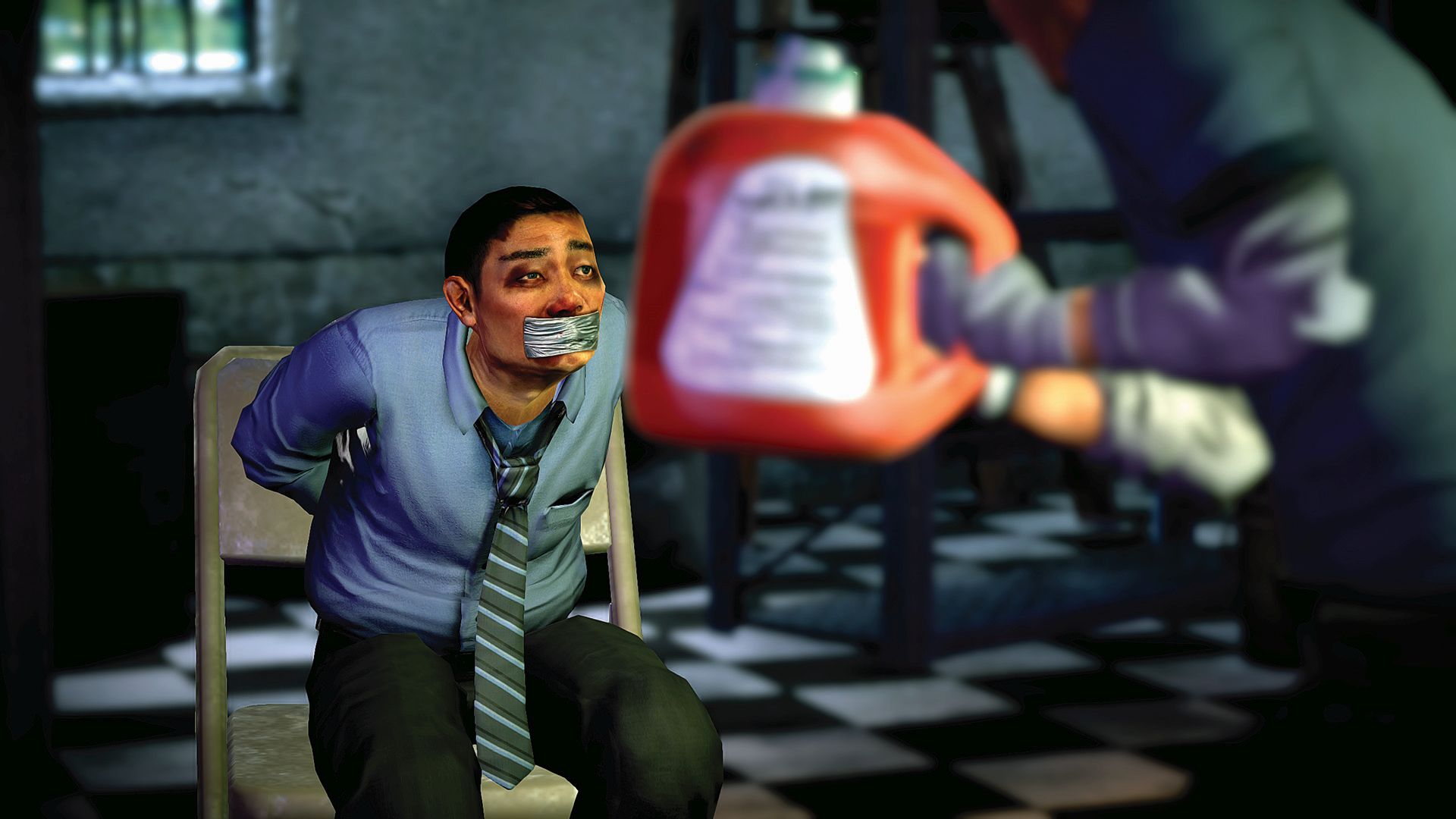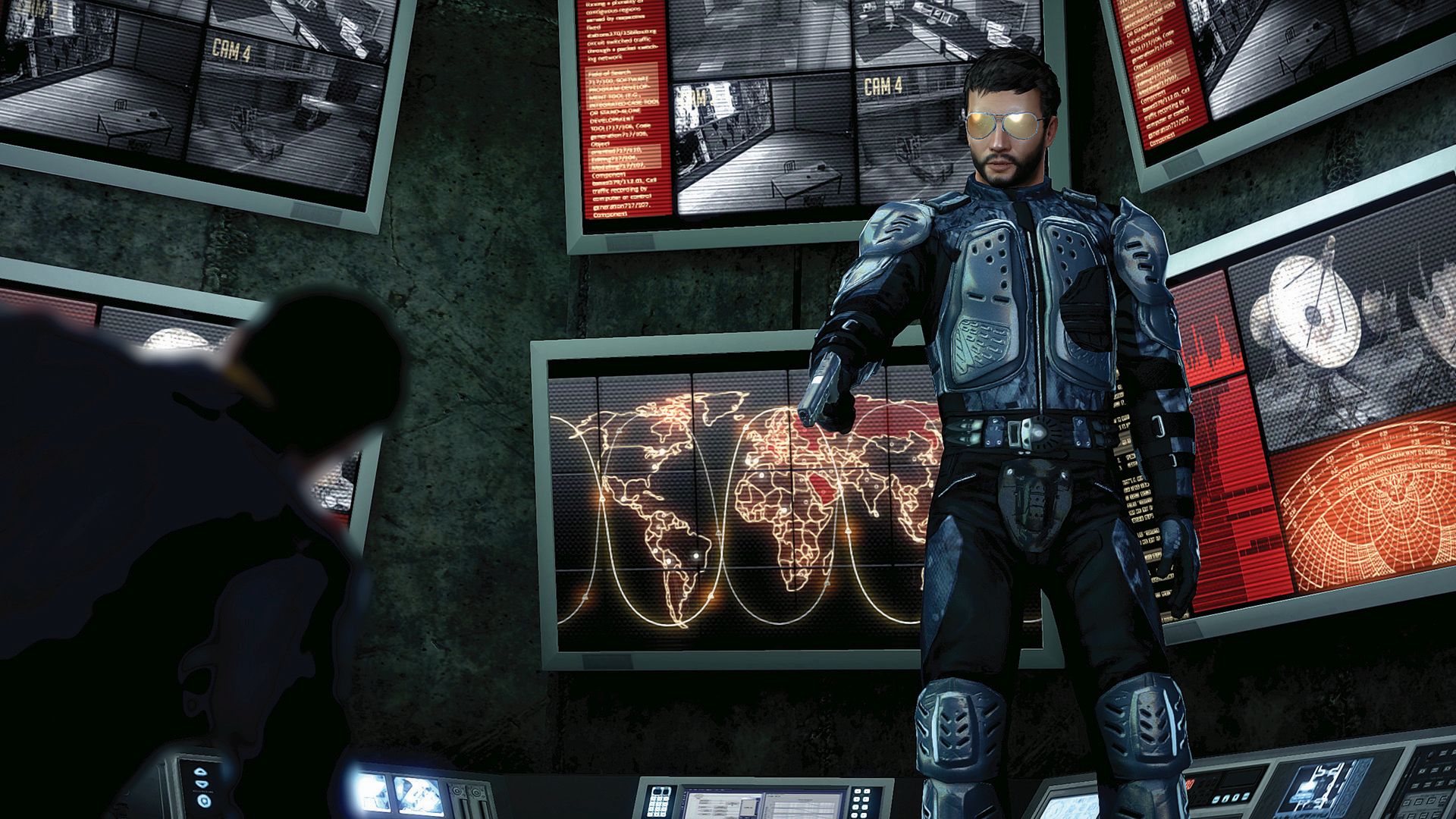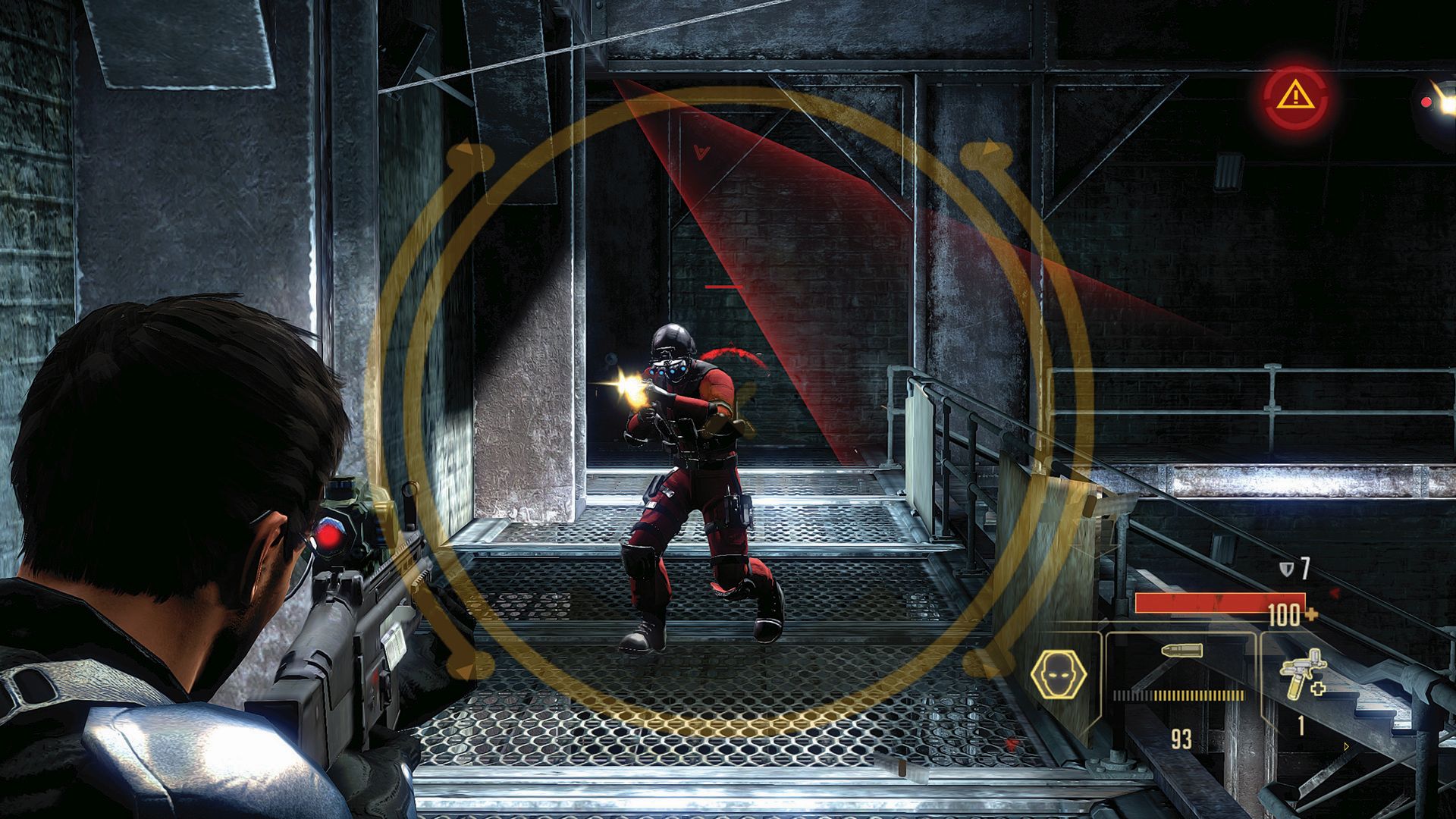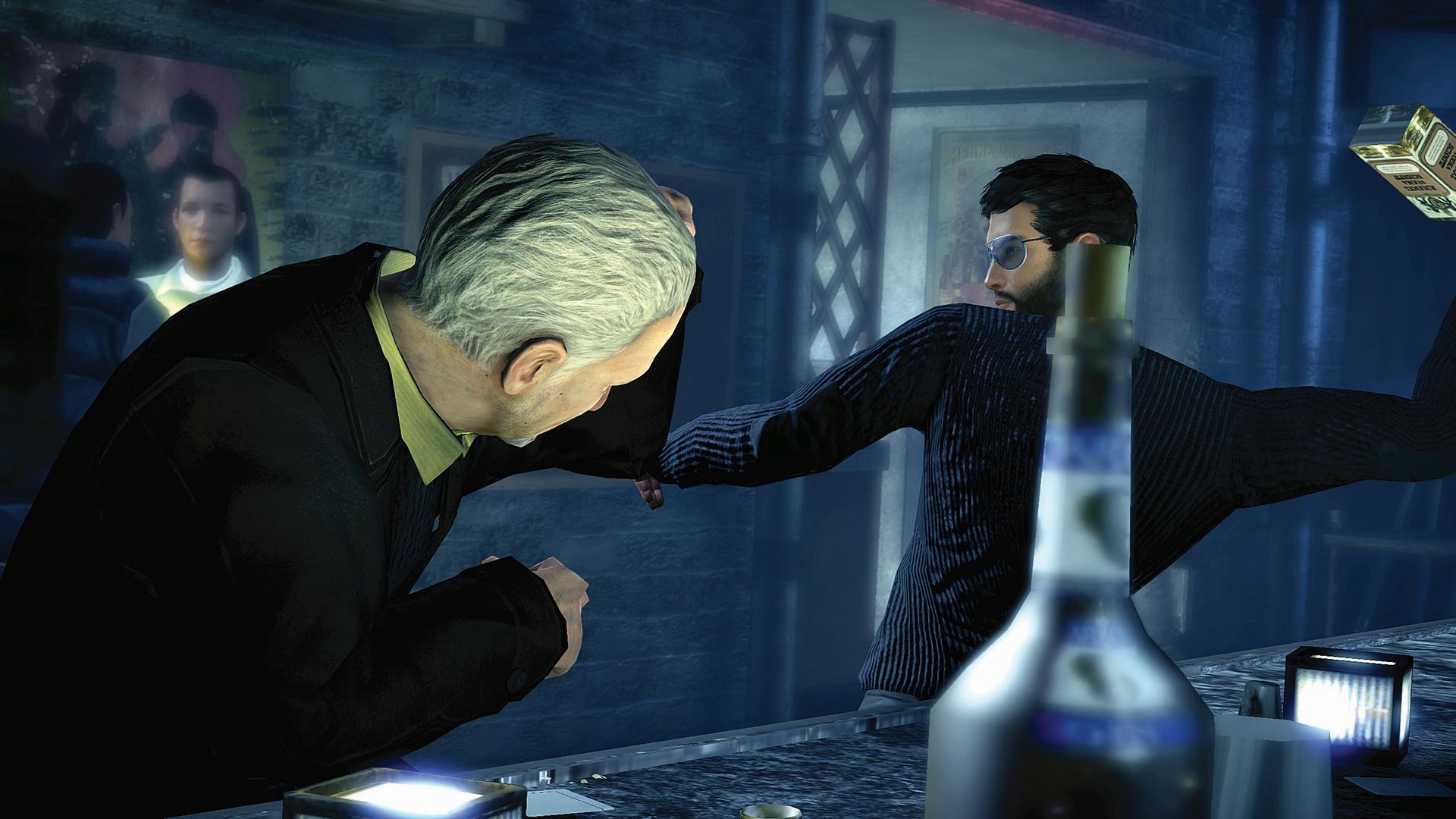Revisiting Alpha Protocol, Obsidian's flawed but fascinating spy RPG
Super-spy Michael Thorton gets a thorough debriefing.


Reinstall invites you to join us in revisiting PC gaming days gone by. Today Phil goes on a slightly broken globetrotting adventure in Alpha Protocol.
Alpha Protocol is peak Obsidian—or, at least, peak Obsidian before Pillars of Eternity set a new, more stable direction for the studio. It’s a wonderful mess, full of great ideas, but hampered by the sort of behind-the-scenes development troubles that plagued the studio for so much of its life. It was delayed multiple times, spent the early part of its production cycle with no project director or lead designer, faced numerous production issues, and, due to differences in opinion between Sega and Obsidian, had time consuming, pricey scenes cut.
All of this shows in the final product, and yet it’s still full of things that make it memorable. This was an ambitious undertaking, and the ideas shine through even as the execution is so obviously lacking.
The first, best idea is the setting. Alpha Protocol is an RPG about espionage, in which you play a Bourne-style rogue agent attempting to thwart a global conspiracy. This is fertile territory for an RPG adventure—a fiction that lends itself to complex stories full of branching possibilities. And it works. There’s intrigue and drama, and a cast of people all with hidden motivations. How your character, Michael Thorton, navigates these relationships is one of the best parts of the game.
Unfortunately, Thorton himself is not a great character. He comes in three basic flavours, depending on your dialogue choices: professional, suave or aggressive. Too often those choices manifest as bland, smarmy or needlessly psychotic. Thorton is, it has to be said, a bit of an asshole. At times, it fits the tone—I found a decent balance alternating between suave and professional, roleplaying a cocky jerk who nevertheless knows when to break character and get down to business. But looking back from the perspective of multiple Bourne, Bond and Mission: Impossible films, Thorton’s act feels stale.

Alpha Protocol wastes no time in laying on the conspiracies and intrigue that prop up the dialogue system. It opens to a fake kidnapping, in which Thorton is drugged for the purposes of an extended tutorial. Soon after, a handler challenges him to retrieve information pertinent to an upcoming operation—a covert side-op that suggests you’re not being given the full picture. And, of course, there’s a narrative framing device, with Thorton debriefing to an unknown figure. It’s a blunt-force intro to the world of skullduggery.
Untangling this mess, however, takes time. First, you’re forced through a lacklustre opening that forgoes much of Alpha Protocol’s best systems. In place is a series of infiltration missions set across Saudi Arabia. The mission structure works well—Thorton must take on various preparatory missions to track down a shipment of missiles stolen by the terrorist organisation Al-Samad. There’s an airfield to bug, a weapons stockpile to investigate, and an arms dealer to intercept. The problem is Alpha Protocol gets more interesting later on. The structure becomes more varied and freeform, and everything you choose has an effect.
Saudi Arabia has none of this—the most subversive thing you can do is talk your way past an opening fight—and it makes for a monotonous opener. It’s a problem heightened by the fact that Alpha Protocol’s combat is not very good. Remember in Deus Ex, when shootouts involved standing still while your reticule slowly targeted the person you wanted to shoot? It wasn’t a good system then, and, unsurprisingly, hadn’t become a good idea a decade later—years after the third-person cover shooter craze of the late-aughts.
Keep up to date with the most important stories and the best deals, as picked by the PC Gamer team.
This is one of the problems of pairing shooter design with RPG mechanics. Mass Effect had shields, and monstrous enemies that could support lots of hit points—shifting the levelling focus to sci-fi skills that caused major damage. But Alpha Protocol is predominantly an RPG set in the real world. Most of the enemies are lightly armoured humans, easily killed by anyone proficient at aiming a mouse. Alpha Protocol attempts to redress the balance through limitations—artificially lowering your aim, and offering skills designed to reduce its self-imposed handicaps. Unsurprisingly, it makes combat inherently unsatisfying. That’s bad news for the Soldier class, but the other two styles benefit from some more rounded specialisation trees. The Tech Specialist is able to use more gadgets, which is a more enjoyable way to play—albeit one hamstrung by the need to predict and manipulate enemy AI. The best, Field Operative, favours stealth, and is comfortably the most powerful build.

While a pure non-detection run is difficult—a casualty, again, of the AI—the pistol and stun gun are both so overpowered they negate much of the challenge. An upgrade, fairly early in the pistol skill tree, lets you line up shots from cover. With this, and a couple of damage upgrades, you can reliably, quickly and silently take down enemies with a single headshot. It’s absurdly effective and allows you to concentrate on exploration and the challenge of bypassing security systems.
I’ll get to Alpha Protocol’s laudable qualities soon, but I can’t skip over the hacking system, which is among the worst minigames I’ve ever encountered. It’s one of three you’re regularly asked to complete, but the other two—lockpicking and bypassing—are inoffensively bland. Hacking, meanwhile, requires you to find two passwords in a grid of scrolling numbers. Once found, you need to overlay the corresponding number string—one controlled by WASD, the other by mouse. To add a fun extra wrinkle, the mouse string doesn’t keep pace with the cursor. Also, failing triggers an alarm. It’s a spectacular failure—an important part of the challenge of espionage reduced to a finicky abstraction.
After Saudi Arabia, and the reveal of the conspiracy that leaves Thorton a rogue agent attempting to bring down the corrupt Halbech corporation, everything changes pace. Thorton is no longer following the agency’s guidance, and instead builds his contacts by delving into each location’s murky underworld. Do you bribe a Triad leader, securing his short term co-operation at the cost of a more long term friendship? Do you play along with a psychotic and possibly delusional CIA operative in order to secure his explosives expertise? Do you befriend the Russian informant, or smash his face in with a bottle? These are all interesting questions and, while the overall plot is broadly fixed, individual story arcs can resolve in a multitude of ways.
This globetrotting second act ups the mission variety, too. There’s still plenty of infiltration to be done, but each mission is a different length and intensity. There are some real highlights, from taking out a hit list of Triad lieutenants across the streets of Taipei, to bugging a small CIA listening post in Rome.

Other missions are simply dialogue and choices. Another, also set in Rome, requires Thorton to steal evidence from an NSA outpost. He goes in disguised as an IT guy, armed with a passphrase that should get him through the door. But the NSA agent doesn’t respond to the phrase the way he should, causing your handler to question whether something is wrong. Do you hold your nerve and possibly walk into a trap, or take action at the cost of a potentially useful lead? Alpha Protocol’s most memorable moments are all clichéd spy fiction scenarios, but made more powerful by the branching dialogue. It’s a system that rewards exploration, too. By completing dossiers you can unlock special conversation options that can alter your relationships.
Early on, you’re taught that befriending people isn’t always the best tactic, and that angering contacts can be a powerful tool. For the most part, that just means that whatever you do, there’s always a way to progress. But the fine details feel important. Major characters can be killed or spared, and some can even be persuaded to switch allegiances. On paper it’s an elegant system, although—this being Alpha Protocol—the execution doesn’t always work.
Unfortunately, the ending feels rushed. The final act threatens the imminent arrival of WWIII—a scenario that never felt earned based on my broadly competent handling of previous missions. The conspiracies start to collide, from Halbech’s corruption of Thorton’s bosses, to the treachery of journalist Scarlet Lake and the manipulations of your primary handler, Mina—something you never get the chance to resolve, even if you end up riding off into the sunset together. Some of this works. The revelation of Scarlet as the assassin you were chasing in Taipei has a nice payoff, and checks another important spy cliché off the list. But everything else feels like it needs more time to breathe. The final revelations come quickly, reducing their impact, and are paired with a final mission that features multiple, terrible boss fights.
But it’s hard to stay mad at Alpha Protocol. It throws a lot of design spaghetti at the wall, and some of it sticks. More importantly, there are lessons here that should be learned from and built upon. There’s potential in the idea, be it of letting players experience a more open, branching form of spy fiction, or just not letting RPGs languish in the realms of fantasy or post-apocalypse. Alpha Protocol isn’t a classic, but it’s earned a place as a cult favourite—just like everything Obsidian does.

Phil has been writing for PC Gamer for nearly a decade, starting out as a freelance writer covering everything from free games to MMOs. He eventually joined full-time as a news writer, before moving to the magazine to review immersive sims, RPGs and Hitman games. Now he leads PC Gamer's UK team, but still sometimes finds the time to write about his ongoing obsessions with Destiny 2, GTA Online and Apex Legends. When he's not levelling up battle passes, he's checking out the latest tactics game or dipping back into Guild Wars 2. He's largely responsible for the whole Tub Geralt thing, but still isn't sorry.

